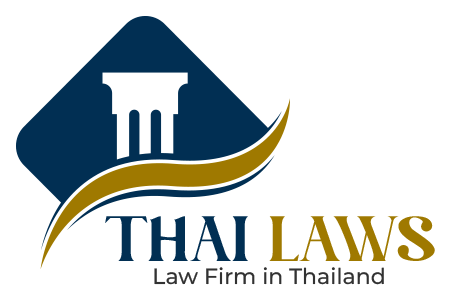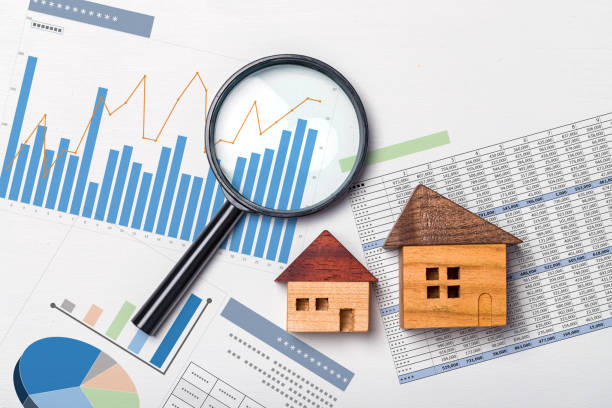Property Market in Thailand. Thailand’s property market has long been a focal point for both local and international investors, driven by its robust tourism sector, vibrant economy, and strategic location in Southeast Asia. However, the dynamics of the Thai property market are complex and influenced by a variety of factors ranging from legal restrictions on foreign ownership to economic policies and global market trends. This article provides a comprehensive analysis of the Thai property market, delving into its structure, opportunities, challenges, and key considerations for potential investors.
1. Overview of the Thai Property Market
The Thai property market is diverse, offering a range of opportunities in residential, commercial, and industrial sectors. The most vibrant areas for property investment include Bangkok, Pattaya, Phuket, Chiang Mai, and Hua Hin, each offering unique advantages and market characteristics.
1.1 Residential Market
The residential market in Thailand is the largest segment, driven by both domestic demand and interest from expatriates and foreign investors. Key categories within the residential sector include condominiums, detached houses, and townhouses.
- Condominiums: Particularly popular among foreign investors due to more flexible ownership laws allowing foreigners to own up to 49% of the total unit area in a condominium building. Bangkok’s condominium market is highly competitive, with prices varying significantly based on location, amenities, and developer reputation.
- Detached Houses and Townhouses: These are more popular among Thai nationals and long-term expatriates. The suburban areas of Bangkok, as well as secondary cities like Chiang Mai and Hua Hin, are hotspots for these types of properties.
1.2 Commercial Market
The commercial property market in Thailand includes office spaces, retail outlets, and hospitality properties. This segment is heavily influenced by the country’s economic performance, particularly in the tourism and retail sectors.
- Office Spaces: The demand for office spaces in Bangkok has seen a steady rise, particularly in central business districts like Silom, Sathorn, and Sukhumvit. The shift towards flexible working spaces has also created a niche market for co-working spaces and serviced offices.
- Retail Outlets: Thailand’s thriving retail sector is supported by a strong consumer base and tourism. Malls, retail centers, and standalone outlets are major investment opportunities, with Bangkok leading the market followed by tourist hubs like Phuket and Pattaya.
- Hospitality Properties: Given Thailand’s status as a top global tourist destination, hospitality properties, including hotels, resorts, and serviced apartments, represent significant investment opportunities. The ongoing recovery from the COVID-19 pandemic is expected to revitalize this sector, particularly in tourist-heavy regions.
1.3 Industrial Market
The industrial property market in Thailand is driven by the country’s manufacturing sector, which is a major component of its economy. Key areas include logistics hubs, warehouses, and manufacturing facilities, particularly in industrial estates around Bangkok, the Eastern Economic Corridor (EEC), and other key industrial zones.
2. Legal Framework and Restrictions
The legal landscape surrounding property ownership in Thailand is crucial for investors to understand, especially for foreigners who face certain restrictions.
2.1 Foreign Ownership Laws
Foreigners are generally prohibited from owning land in Thailand, but they can own buildings or structures on leased land and up to 49% of the total area of a condominium building.
- Leasing Land: Foreigners can lease land for up to 30 years, with options to renew. This has led to the popularity of long-term leasehold agreements, particularly in resort areas where foreigners invest in holiday homes.
- Condominium Ownership: The 49% foreign ownership quota in condominiums has been a major driver of foreign investment in Thailand’s property market. However, this cap means that popular condominium developments often fill their foreign ownership quota quickly, limiting availability.
2.2 Legal Entities for Property Ownership
Foreigners looking to invest in land-based properties often do so through legal entities, such as Thai companies. However, the legal requirements for company formation and operation must be strictly followed to comply with Thai laws, and the practice of nominee shareholders is illegal and can result in legal complications.
- Thai Limited Company: Some foreign investors establish a Thai limited company to purchase property, where the company is the legal owner of the land. However, the majority of the company’s shares must be owned by Thai nationals.
- Board of Investment (BOI) and the Eastern Economic Corridor (EEC): Special economic zones like the EEC offer more flexible investment rules, including land ownership for BOI-promoted companies, which can be a strategic advantage for foreign investors.
2.3 Taxes and Fees
Investing in property in Thailand involves various taxes and fees, including:
- Transfer Fee: Typically 2% of the property’s appraised value, payable upon the transfer of ownership.
- Stamp Duty or Specific Business Tax (SBT): Stamp duty is 0.5% of the property’s sale price or appraised value, whichever is higher, while SBT is 3% and applies if the property is sold within five years of purchase.
- Income Tax: This is a withholding tax, typically 1% of the sale price for individuals, and it can vary for companies based on corporate tax rates.
3. Market Trends and Investment Opportunities
The Thai property market has seen several trends in recent years, influenced by both domestic developments and global economic conditions.
3.1 Growth of Urbanization and Infrastructure Development
Thailand’s ongoing urbanization, particularly in Bangkok and its surrounding areas, has driven demand for both residential and commercial properties. Infrastructure developments, such as new mass transit lines and road networks, are making previously less accessible areas more attractive for investment.
- Bangkok’s Expanding MRT and BTS Lines: The expansion of Bangkok’s mass transit system has opened up new neighborhoods for development. Areas like Bang Sue, Thonburi, and Phra Khanong have seen significant increases in property values as they become more connected to the city center.
- Eastern Economic Corridor (EEC): The EEC is a major government initiative aimed at transforming Thailand into a leading economic zone in ASEAN. It includes significant infrastructure projects, such as the expansion of U-Tapao Airport and the development of new industrial estates, which are expected to boost property values in the region.
3.2 Impact of COVID-19 and Market Recovery
The COVID-19 pandemic had a significant impact on Thailand’s property market, particularly in the hospitality and retail sectors. However, the market has shown resilience, with a focus on recovery and adaptation.
- Hospitality Sector: The tourism-dependent hospitality sector is gradually recovering as international travel resumes. There is growing interest in acquiring distressed assets in this sector, with investors betting on a strong rebound in tourism.
- Residential Market: The residential market saw a temporary slowdown, but low-interest rates and government incentives, such as reduced transfer fees, have helped sustain demand. There is also increased interest in properties outside of Bangkok as remote working becomes more prevalent.
3.3 Sustainable and Green Developments
Sustainability is becoming an increasingly important factor in Thailand’s property market. Developers are focusing more on green buildings and sustainable practices to meet the demands of environmentally conscious consumers and comply with evolving regulations.
- Green Buildings: Projects that incorporate energy-efficient designs, sustainable materials, and smart technologies are gaining popularity, particularly among expatriates and younger Thai buyers.
- Eco-friendly Resorts and Villas: In tourist areas like Phuket and Koh Samui, there is a growing trend towards eco-friendly resorts and villas that cater to the increasing demand for sustainable tourism options.
4. Challenges and Risks in the Thai Property Market
While the Thai property market offers numerous opportunities, it also presents several challenges and risks that investors must navigate.
4.1 Market Volatility and Economic Factors
The Thai property market is subject to volatility, influenced by both domestic economic conditions and global market trends. Factors such as political stability, changes in interest rates, and currency fluctuations can impact property values and investment returns.
- Political Stability: Political uncertainty can lead to fluctuations in investor confidence, particularly among foreign investors. It is crucial to stay informed about the political climate and potential changes in government policies that could affect the property market.
- Interest Rates and Financing: Changes in interest rates can affect the affordability of mortgages and the overall demand for property. Investors should consider the potential impact of interest rate changes on their investment strategy.
4.2 Legal and Regulatory Challenges
Navigating Thailand’s legal and regulatory landscape can be challenging, especially for foreign investors who may not be familiar with local laws and practices.
- Foreign Ownership Restrictions: As mentioned earlier, foreign ownership of land is restricted, which can limit investment options. It is essential to understand these restrictions and explore alternative investment structures, such as leasehold agreements or joint ventures with Thai partners.
- Regulatory Changes: The Thai government periodically updates property laws and regulations, which can impact the market. Investors should stay informed about potential changes and seek legal advice when necessary.
4.3 Environmental and Climate Risks
Thailand’s property market is also exposed to environmental risks, particularly in coastal areas prone to flooding, storms, and rising sea levels.
- Flood Risk in Bangkok: Bangkok is particularly vulnerable to flooding due to its low elevation and extensive canal system. Investors should consider the potential impact of flooding on property values and insurance costs.
- Coastal Erosion and Rising Sea Levels: Coastal properties in areas like Phuket and Pattaya may be at risk from coastal erosion and rising sea levels. Sustainable development practices and proper due diligence can help mitigate these risks.
5. Strategic Considerations for Investors
Investing in the Thai property market requires a strategic approach, considering both the opportunities and risks involved.
5.1 Long-term vs. Short-term Investment Strategies
Investors should carefully consider whether a long-term or short-term investment strategy aligns better with their goals.
- Long-term Investments: Long-term investors may focus on properties in areas with strong growth potential, such as the EEC or emerging suburbs of Bangkok. These investments can benefit from capital appreciation and rental income over time.
- Short-term Investments: Short-term investors might target distressed assets or properties in tourist areas expected to recover quickly from the pandemic. However, this strategy carries higher risks and requires careful market analysis.
5.2 Diversification and Portfolio Management
Diversifying investments across different property types and locations can help mitigate risks and enhance returns.
- Geographic Diversification: Investing in different regions, such as Bangkok, Phuket, and the EEC, can reduce exposure to localized market fluctuations.
- Property Type Diversification: Balancing investments across residential, commercial, and industrial properties can provide stability and multiple income streams.
5.3 Legal and Professional Advice
Given the complexities of the Thai property market, seeking professional advice is essential.
- Legal Advice: A knowledgeable lawyer can help navigate the legal and regulatory landscape, ensuring compliance with Thai laws and protecting the investor’s interests.
- Financial and Market Analysis: Engaging with financial advisors and market analysts can provide valuable insights into market trends, helping investors make informed decisions.
Conclusion
The property market in Thailand offers a wealth of opportunities for both local and international investors. However, it is also a market characterized by complexities, including legal restrictions, market volatility, and environmental risks. By understanding the intricacies of the market, staying informed about trends and regulations, and seeking professional advice, investors can navigate these challenges and capitalize on the opportunities available.
Whether investing in a bustling metropolis like Bangkok, a serene beachside resort in Phuket, or a strategic industrial hub in the EEC, a well-considered and strategic approach will be key to success in Thailand’s dynamic property market.


